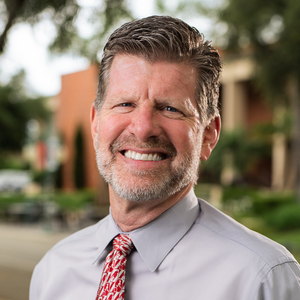Are you busy?
It can be difficult for most of us to find the time to read a book as we are often just simply trying to keep our heads above water. We are busy. This is why we might need to carve out the time to read Kevin DeYoung’s Crazy Busy: A (Mercifully) Short Book About a (Really) Big Problem (Crossway, 2013), 124 pages.
This is the simple outline he provides for his book. He summarizes, “My outline is as simple as three number: 3, 7, and 1: three dangers to avoid (chapter 2), seven diagnoses to consider (chapters 3-9), and one thing you must do (chapter 10)” (18). He, then, explains his goal in writing the book as, “I don’t promise total transformation. I offer no money-back guarantees. My goal is more modest. I hope you’ll find a few ways to tackle your schedule, several suggestions for reclaiming your sanity, and a lot of encouragement to remember your soul” (18).
Like many of you, I am trying to balance the many responsibilities in my life, which can at times seem overwhelming and somewhat complex. DeYoung seeks to look at busyness from a simple, yet profound, perspective. I summarize this perspective as: busyness is not bad; the issue is more the kind of heart from which busyness originates. He makes a point, which I consider to be his central concern, in this manner: “The greatest danger with busyness is that there may be greater dangers you never have time to consider” (31-32). He provides further explanation of this point by setting forth three dangers of busyness:
#1 Busyness can ruin our joy.
#2 Busyness can rob our hearts.
#3 Busyness can cover up the rot in our souls.
Although DeYoung provides a helpful explanation of each, I found my own mind racing with further thoughts. Maybe that was his goal. Maybe he wants us all to take some time and think more about the topics he addresses. Or maybe it would have been helpful for him to develop each of these dangers even further. I believe that each deserves to be a chapter in the book. They may be the most important points he is making.
Overall, the book is helpful. I would not be taking the time to tell you about it if it was not helpful to me. However, I believe that the book would be more beneficial if DeYoung would have weaved his central concern, along with the three dangers, throughout the book to more clearly delineate their rootedness in the pitfalls (his “diagnoses”) of busyness. I believe that the issues of the heart are important enough that they should have been integrated into each chapter. Busy people need some help opening up their hearts. He does it to some degree, but I think it would be helpful to provide more insight with this as his focus. I, for one, would have liked to hear his thoughts.
I think that it would also be helpful to bring some emphasis to what repentance would “look like” with each of his diagnoses. He provides some guidance in that area, but I think that people who are busy can be so lost in the defense of their busyness (i.e., “What option do I have? I have to get this done.”) that it would be helpful to show them the path of repentance. So I think that chapters 3-9 would be richer if they ended with a section entitled, “The Path to Repentance.” For some, the chapters would bring such conviction that the next step of repentance would flow naturally. But I assume there are many who might feel "stuck in their muck."
I will add that DeYoung provides excellent insight concerning repentance in chapter 10, where he dives into the Mary and Martha story found in Luke 10. He brings the focus of this account to the word “distracted,” which is helpful for putting busyness into perspective. That is where much busyness originates. In this final chapter of his book he brings his whole discussion to a conclusion. As I read his words in this chapter, I was reminded of the way A. W. Tozer ended his book, The Knowledge of the Holy, with the chapter entitled “The Open Secret.” His final words were “Acquaint thyself with God.” DeYoung ends his book similarly. It seems that so much of life boils down to the simplicity of loving God, knowing God, finding a refuge in God, etc. And one more time, DeYoung brings his book to a conclusion with the words we need to hear, “It is not wrong to be tired. It’s not wrong to feel overwhelmed. It’s not wrong to go through seasons of complete chaos. What is wrong—and heartbreakingly foolish and wonderfully avoidable—is to live a life with more craziness than we want because we have less Jesus than we need” (118).
It may seem overly simple, but it may change your life. Why not find a park somewhere close by so that you can take some time to read your Bible and pray? Jesus awaits you, and your soul will be the better for it.
 Biola University
Biola University


.jpg)
